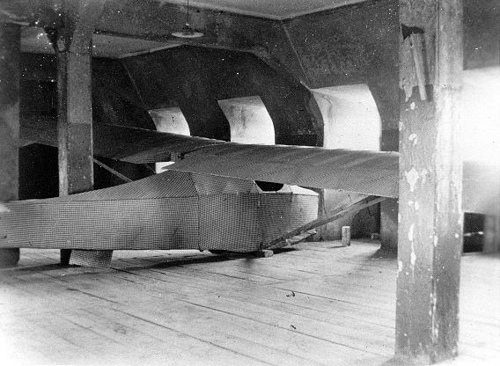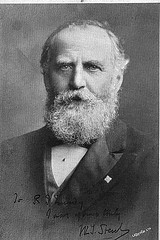Is the question “What is an example of a question which is not its own answer?” its own answer?
Author: Greg Ross
Unquote

“If fifty million people say a foolish thing, it is still a foolish thing.” — Anatole France
Curiously, when France died in 1924, doctors found that his brain was two-thirds normal size. But, said surgeon Louis Guillaume, “It was the most beautiful brain one could dream of seeing. Its convolutions were marvelous.”
Interlude
There was a Man who presented to Henry the Great of France, an Anagram upon his name, (Borbonius) which was Bonus Orbi, Orbus Boni; the King asked him what it meant, he told him, That when his Majesty was a Hugonot he was Bonus Orbi [good to the world], but when he turned Catholick he was Orbus Boni [destitute of good]; a very fine Anagram, saith the King; I pray what Profession are you of? Please your Majesty I am a maker of Anagrams, but I am a very poor Man: I believe it, said the King, for they that use that Trade cannot grow very Rich.
— William De Britaine, Humane Prudence, 1693
Message Received
Dorothy Parker grew tired of hearing Mary Sherwood talk about her pregnancy.
So when the baby arrived, she sent a telegram:
GOOD WORK, MARY. WE ALL KNEW YOU HAD IT IN YOU.
The Colditz Cock

The guards at Nazi prisoner-of-war camps were accustomed to looking for tunnels — so they never thought to look in the attic at Colditz Castle, where, astonishingly, British prisoners had constructed a 19-foot glider from scavenged materials.
They planned to launch it from the roof, using a pulley system driven by a falling bathtub full of concrete. They hoped this would send two men soaring across the River Mulde 60 meters below.
The American army liberated the camp before the glider could be launched, and it was subsequently lost, so for 55 years its designers could only wonder whether the “Colditz Cock” would really have flown. But in 1999 a British aviation company built a full-size replica, and the POWs reunited to watch the launch. It worked.
Gun Control
Only four days ago, right in the next farm house to the one where I am spending the summer, a grandmother, old and gray and sweet, one of the loveliest spirits in the land, was sitting at her work, when her young grandson crept in and got down an old, battered, rusty gun which had not been touched for many years and was supposed not to be loaded, and pointed it at her, laughing, and threatening to shoot. In her fright she ran screaming and pleading toward the door on the other side of the room; but as she passed him he placed the gun almost against her very breast and pulled the trigger! He had supposed it was not loaded. And he was right: it wasn’t. So there wasn’t any harm done.
— Mark Twain, “Advice to Youth,” 1882
In a Word
dromaeognathous
adj. having a palate like an emu
Vindicated

As a writer, W.T. Stead may have been too prescient.
In 1886 he published an article about the sinking of an ocean liner and the consequent loss of life, warning, “This is exactly what might take place and will take place if liners are sent to sea short of boats.”
Six years later he wrote a novel, From the Old World to the New, in which a ship collides with an iceberg in the North Atlantic and sinks; the survivors are picked up by the Majestic, a ship of the White Star Line.
An outspoken newspaper editor, Stead himself embarked for the New World in April 1912 when President Taft invited him to address a peace conference at Carnegie Hall.
Alas, he never arrived — he had booked his passage on the RMS Titanic.
Spellbound
‘Well, it was a quite shocking, I must say — there was blood everywhere!’ Alfred Hitchcock began suddenly from the rear of the elevator. We were in the New York St. Regis Hotel, heading down to the lobby. There was as light flush to his cheeks from the several frozen dauquiris he had just drunk in his suite. The elevator had just stopped and three people dressed for the evening had joined us, and immediately Mr. Hitchcock had started to speak, sounding as though he were in midsentence and projecting in that careful and familiar TV tone of his.
He went on, ‘There was as stream of blood coming from his ear and another from his mouth.’ The people had recognized him immediately, but now they seemed purposely to avoid looking at him. He went right on, gazing beatifically ahead of him as the elevator stopped again and another well-dressed couple came aboard: ‘Of course, there was a huge pool of blood on the floor and his clothes were spattered with it — Oh, it was a horrible mess.’
No one on the elevator, it seemed, was breathing. ‘Blood all around! Well, I looked at the poor man and and I said, “Good God, what happened to you?”‘ At that point the elevator doors opened onto the lobby, and Hitchcock said, ‘Do you know what he told me?’ and then paused. After a moment, and quite reluctantly, the other passengers moved out of the elevator and then looked back at the director as we walked away.
After several foggy moments, I asked, ‘Well, what did he say?’ and Hitchcock smiled benevolently, taking my arm, and said, ‘Oh, nothing — that’s just my elevator story.’
— Peter Bogdonavich, Who the Devil Made It, 1997
Freak Winds
Feb. 7, 1988, was a normal day in Lancashire until 10 p.m., when an anemometer at the Hazelrigg weather station registered a single wind gust of 106 mph. Immediately afterward, the winds dropped back to 5 mph.
The squall was tiny but real — investigators discovered that it had moved a 75-kilogram sheep feeding trough a distance of 5.1 meters.
On June 15, 1960, a collapsing thunderstorm blasted Kopperl, Texas, with 75-mph gusts of superheated air that raised the temperature to 140 degrees Fahrenheit, fully 20 degrees above the state’s all-time record. It’s remembered as “Satan’s storm.”
